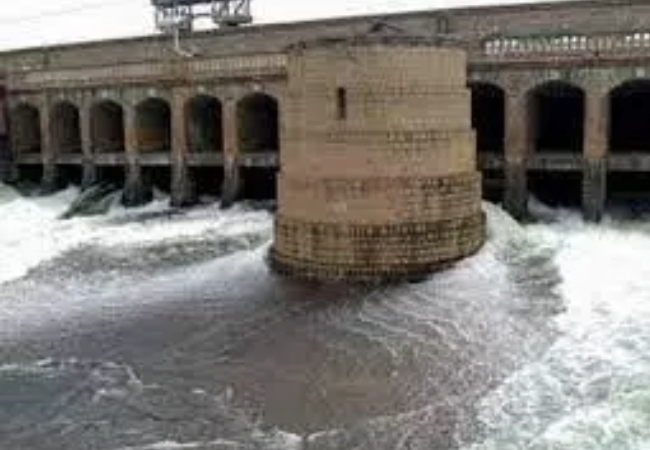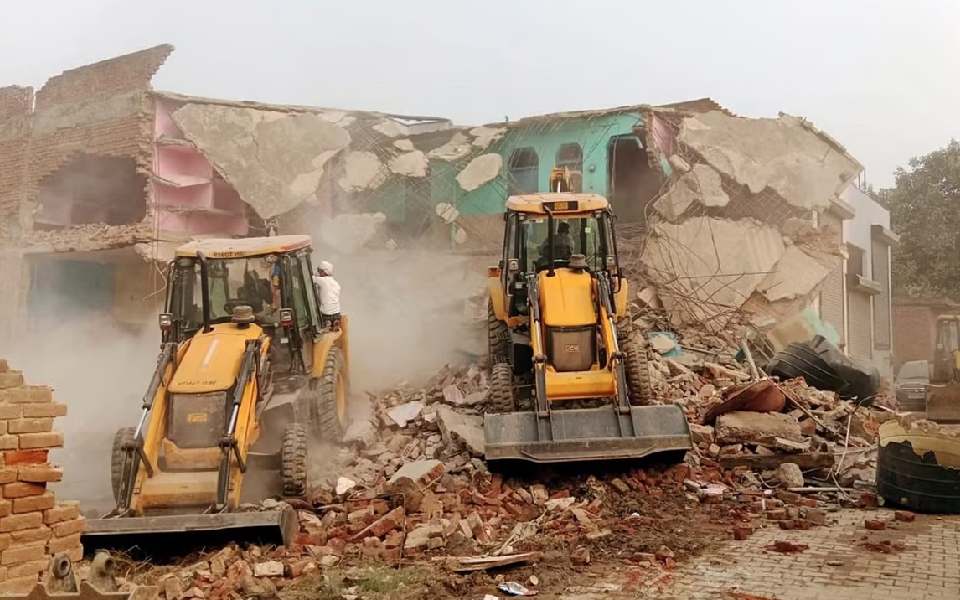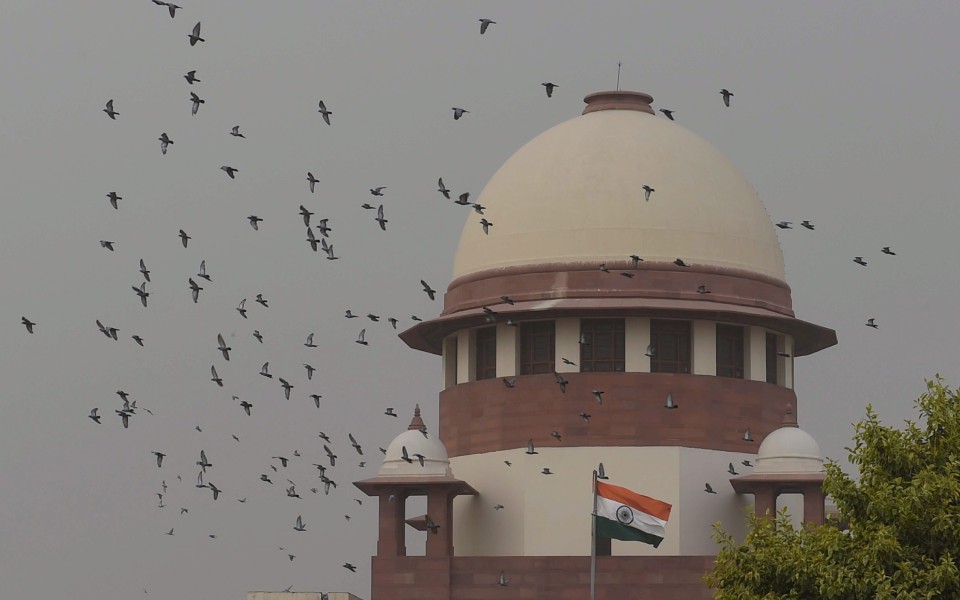Chamarajanagar (PTI): The direction of the Cauvery Water Regulation Committee to Karnataka to release water at the rate of 3,000 cubic feet per second (cusecs) to Tamil Nadu from Thursday to October 15 will be challenged before the Supreme Court, the Chief Minister Siddaramaiah said on Wednesday.
Siddaramaiah said he has spoken to the State's legal team which opined that it should be challenged in the apex court.
"We are challenging the order of the Regulation Committee before the Supreme Court. We don't have water to give," the CM told reporters at Male Mahadeshwara Hills in this district.
Deputy Chief Minister D K Shivakumar had on Tuesday expressed satisfaction over the CWRC rejecting the request of Tamil Nadu, which wanted Karnataka to release 12,000 cusecs.
Karnataka submitted before CWRC at its meeting in New Delhi on Tuesday that the shortfall in cumulative inflows to its four reservoirs in the Cauvery basin up to September 25 is 53.04 per cent.
According to Karnataka officials, due to the failure of the south-west monsoon (from June to September) this year, there is no sufficient storage in the four reservoirs and the State is facing such a grave situation that it is finding it extremely difficult even to cater to the drinking water requirements let alone supplying for irrigation.
The rainfall received in Karnataka this year in the months of August and September is the lowest in the last 123 years, they said.
Later speaking to reporters in Bengaluru, Shivakumar, the Water Resources Minister, appealed to Kannada organisations to drop the call for bandh on Friday, and said the government is committed to protect the interest of the farmers and drinking water requirements of the state.
"Yesterday's (Bengaluru) bandh has been by and large successful, people have cooperated....we too are with protesters, as we are in the government, we have to abide by law and rules. Some organisations have called for bandh on September 29, I appeal to them, as people have cooperated with yesterday's bandh; once again calling a bandh will cause losses and inconvenience to them, let that not happen," he said.
Following the agitations and after hearing the arguments made by the government, the quantum of water to be released to Tamil Nadu has been reduced from 5,000 cusecs to 3,000 cusecs, the Congress leader pointed out.
"Rejecting Tamil Nadu's request for releasing 12,000 cusecs is a big (thing) for Karnataka. Earlier we had committed 3,000 cusecs, but in the recent hearing we said we will not release water. Even now, it is the opinion of the Chief Minister and mine is not to release water from KRS dam.
"In other places there is inflow and any ways the water including the seepage water will go (to TN), and there will be evaporation as well," he added.
Karnataka bandh has been called on September 29 by 'Kannada Okkuta', an umbrella outfit for Kannada organisations, led by activist Vatal Nagaraj.
Let the Truth be known. If you read VB and like VB, please be a VB Supporter and Help us deliver the Truth to one and all.
Lucknow, May 11 (PTI): The Uttar Pradesh government on Sunday said that more than 350 unauthorised religious sites, including madrasas, mosques, mazars and Eidgahs, have been identified and subjected to sealing or demolition in recent days, an official statement issued here said.
Acting on Chief Minister Yogi Adityanath's clear directive that no religious encroachment will be tolerated, the administration in districts such as Pilibhit, Shravasti, Balrampur, Bahraich, Siddharthnagar and Maharajganj has launched a sweeping campaign, it said.
The authorities have systematically identified illegal structures and taken strict action, continuing operations even on Sunday.
The chief minister has made it clear that encroachment in the name of any religion will not be allowed and all violators, especially those running unrecognised religious institutions, will face legal consequences, the statement said.
On May 10 and 11, 104 madrasas, one mosque, five mazars and two Eidgahs built illegally on public and private land were identified in Shravasti. All were issued notices and sealed, it said.
One illegal madrasa on public land was demolished and two unrecognized madrasas on private land were sealed, the statement added.
In Bahraich, officials identified 13 madrasas, eight mosques, two mazars and one Eidgah illegally constructed on government land.
After issuing notices, five were sealed and 11 were demolished, including eight madrasas, two mosques and one mazar, the statement said.
In Siddharthnagar, the authorities identified four mosques and 18 madrasas and one more madrasa for illegal construction. Notices were issued to these structures. Five madrasas were sealed and nine were demolished. In total, action was taken against 23 illegal structures in the district, it said.
In Maharajganj’s Nautanwa tehsil, Parsamalik village, an unrecognized madrasa operating on Maktab land was shut down based on a report submitted by the District Minority Welfare Officer.
The building’s keys were handed over to the local police station in-charge. So far, 29 madrasas and five mazars constructed through encroachment on public and private land have been demolished in the district.
In past two days in Lakhimpur Kheri, two mosques, one Eidgah on public land along with eight madrasas on private land were found to be illegally constructed.
Of the 13 structures identified, one was served a notice, nine were sealed and three have been demolished so far, the statement said.
The district authorities in Pilibhit have identified an illegal mosque built on public land in Bharatpur village, covering an area of 0.0310 hectares.
According to the district magistrate, a notice has been issued to the parties involved, seeking a response within 15 days. Action against the illegal construction will be taken after the notice period ends, it said.
On Sunday, an under-construction madrasa on public land in Virpur Semra village, Tulsipur tehsil, was demolished in Balrampur. So far, 30 madrasas, 10 mazars and one Eidgah have been demolished in the district.
Ten of them were built illegally on public land, while 20 were constructed without authorization on private land, the statement said.





